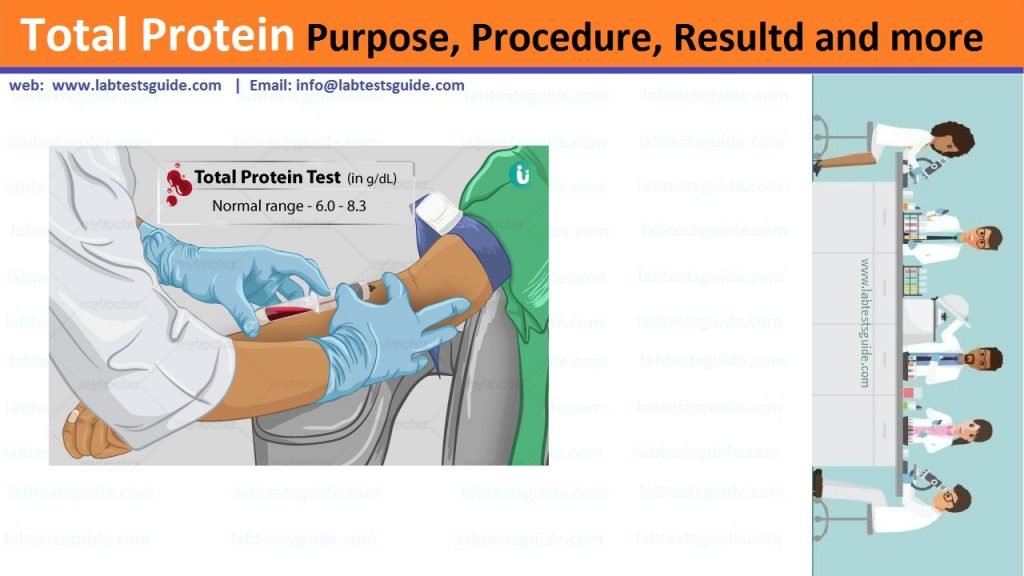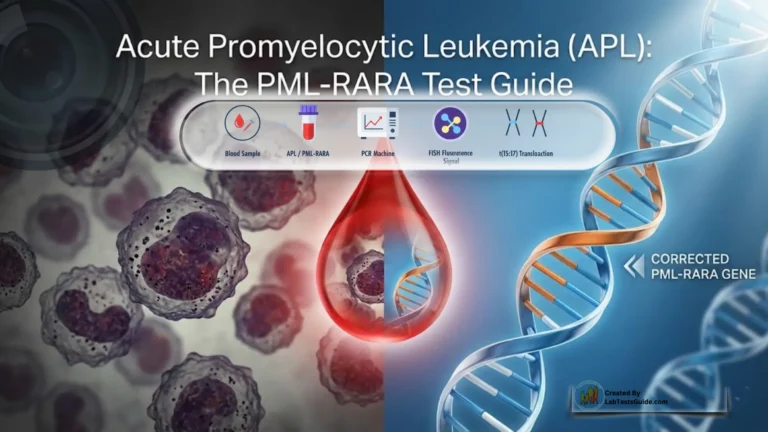The total protein test measures the total amount albumin and globulin in your body. It’s used as part of your routine health checkup. It may also be used if you have unexpected weight loss, fatigue, or the symptoms of a kidney or liver disease.

Also Known as: TP, Total Protein, T. Protein
Test Panel: Total Bilirubin, Conjagated Bilirubin, Unconjugated Bilirubin, ALT, AST, ALP, Total Protein, Albumin, Globulin, A/G ratio, GGT,
Why Get Tested :
- This can diagnose some inflammatory diseases.
- It can diagnose neoplastic diseases like multiple myeloma and lymphoma.
- Advised In immune disorders.
- Advised In liver diseases.
- Advised In nephrotic syndrome.
- Advised In Chronic edema.
- To detect monoclonal proteins (Immunoglobulins).
- CSF for the oligoclonal band.
When to get Tested:
- When you have a routine health exam.
- When you experience unexpected weight loss or fatigue.
- When your healthcare practitioner thinks that you could have symptoms of a liver or kidney disorder
Sample:
- This is done on the serum of the patient.
- Also, can be done in urine. 24 hours urine is preferred.
- CSF for the oligoclonal band.
Normal Values:
- Total protein = 6.4 to 8.3 g/dL.
- Albumin = 3.5 to 5 g/dL.
- Globulin = 2.3 to 3.4 g/dL
Increased Total Protein (Hyperproteinemia) seen in:
- Dehydration and hemoconcentration due to a fluid loss like vomiting, diarrhea, and poor kidney function.
- Liver diseases.
- Multiple myelomas.
- Gammopathies.
- Waldenstrom’s globulinemia.
- Sarcoidosis and other granulomatous diseases.
- Autoimmune diseases like SLE, and Rheumatoid arthritis.
- Chronic inflammation.
Decreased Total protein (Hypoproteinemia) seen in:
- Severe liver disease.
- Renal disease, nephrotic syndrome.
- Starvation and malabsorption.
- Diarrhea, ulcerative colitis, and Crohn’s disease.
- Severe burn.
- Skin diseases.
- Hypothyroidism.
- Heart failure.








0 Comments